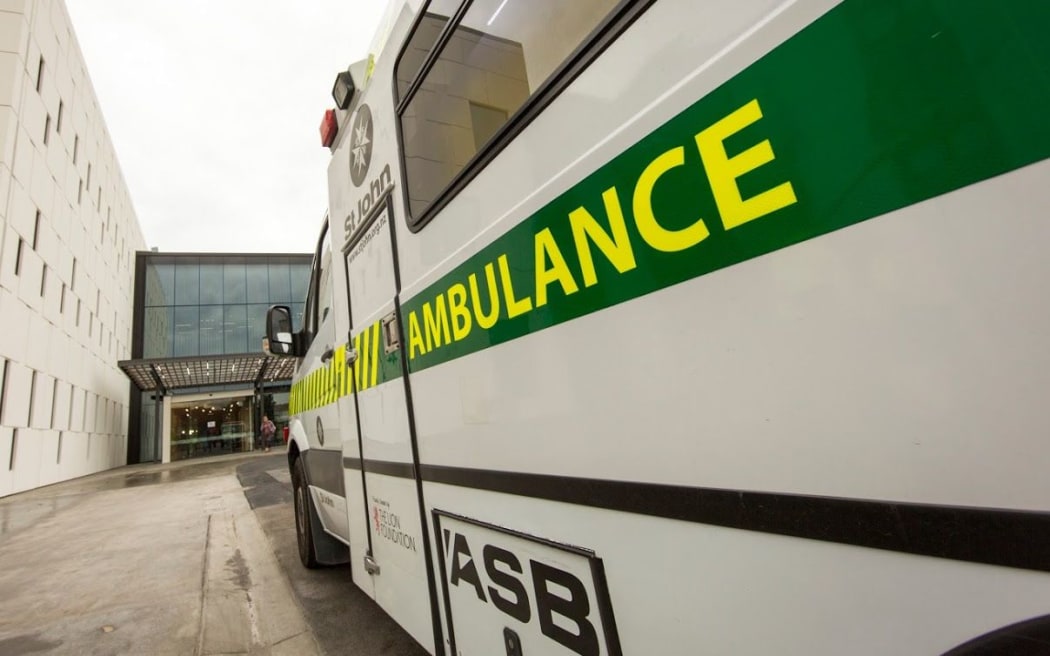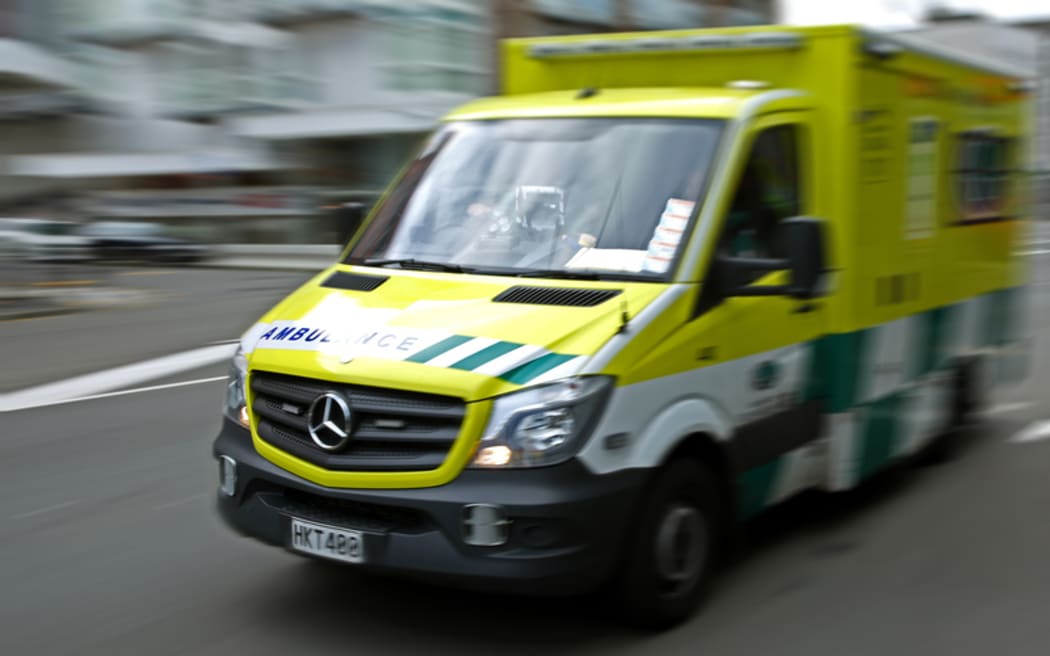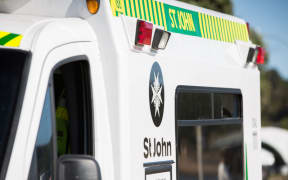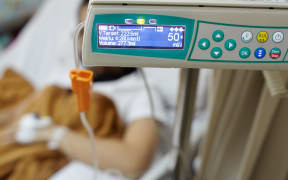Hospitals have been forced to leave patients to wait in ambulances due to a lack of space as emergency services and departments are overwhelmed by a surge in winter illnesses, an ED director says.

Calls to St John are up significantly on the same time last year. Photo: Supplied
Hospital emergency departments have been overwhelmed by the number of patients coming through their doors.
Taranaki District Health Board said its 290 beds in New Plymouth and Hawera are all full.
Waikato Hospital emergency department clinical director John Bonning said its wards were packed, and they were forced to keep people waiting in ambulances.
"People are coming in by ambulance but there is absolutely no physical space in the emergency department to put these people, so the patients need to stay in the ambulance," he said.
"With the crew tied up and off the road until there's a physical space because we simply haven't got the space for them and we're even starting to put patients in corridors," he said.
He said such a situation had never happened in New Zealand before this winter.
"This is the sort of thing that's happening three of four times a week, sometimes more, where we just run out of physical space."
Dr Bonning said it was likely other hospitals had had to do the same.
He estimated there had been an increase of between 8 to 10 percent in people turning up to Waikato Hospital's ED in the past month.
The majority were genuinely very ill and needed emergency care, he said.
St John Ambulance also had its busiest June on record, responding to as many as an extra 300 emergency callouts a day compared to this time last year.
Calls to the ambulance service jumped from 74,000 in June 2016 to 80,000 last month, up 7 percent nationally, and as much as 14 percent in Waikato and 16 percent in Northland.
St John director of clinical operations Norma Lane said many of the calls were from people suffering winter-related illnesses, including colds, coughs, chest infections and influenza. Some of those were minor and others had turned into more serious conditions.
"It is those winter ailments that have driven up demand.
"You generally see it when there's a drop in temperature.
"It follows a little bit like a Mexican wave, if you like, across the health system ... it will trigger those respiratory illnesses, those people who suffer from asthma and then that vulnerability turns into minor illness, which then can acerbate and can become an emergency later on."
'Dramatic increase' puts pressure on ambulance staff
Ms Lane said the spike in calls put enormous pressure on workers.
"It's been really hard for all of our people, our call handlers and front line staff."
"Call handlers can take up to 100 calls a day, and that's stressful to be taking emergency calls one and after another. And for our front-line crews, they're going from job to job so it interrupts our ability to give them good rest breaks... we see our own staff sickness will increase as a result as well."
Wellington Free has seen a similar rise in calls.
It had one of it's busiest days on Monday, taking 1700 calls compared to 1400 on a normal day.
It's ambulance operations manager, Geoff Procter, said the workload had jumped about 10 percent on the same time last year.
"The tough thing for staff is that they end up doing a lot more work in their regular days, they end up missing their breaks that they would normally get and there's a lot less resilience and capacity to tend to our other calls that come in."
He said it was unusual to see such a surge in demand so early in the season.
"We do generally expect a slight increase in workload, year on year anyway, as you would expect with population growth. But this quite a dramatic increase, and it's hard to know whether it's an increase full stop or because the winter has come early."

Wellington Free Ambulance said their workload had improved significantly. Photo: RNZ / Alexander Robertson
Hospitals full as winter chill bites
Northland District Health Board acting chief executive Andrew Potts said the there had been a 17 percent hike in the number of patients turning up to Whangarei Hospital, an average of 119 a day.
"We're facing the peak right about now.. so we expect the current situation to apply for a few weeks yet before the rate of presentations and admissions goes down as we move into the spring period."
But he said ambulances hadn't been forced to wait while spaces free up in the wards or ED.
In Auckland, hospital emergency departments say record patient numbers are causing staff stress and creating long wait times for hospital beds.
Middlemore Hospital's emergency department says patient numbers have surged, with up to 400 people a day wanting attention, including around 100 children.
The acting chief medical officer at Middlemore Hospital, Vanessa Thornton, said the surge was putting stress on staff and laboratories.
"It's certainly colder earlier this year than it was last year, it was a very mild winter. In South Auckland we have a lot of houses that are not insulated and so we think that is contributing to it," she said.
Nationwide flu rates 'significantly' lower than recent years - Health Ministry
Stewart Jessamine from the Ministry of Health told Morning Report the rate of influenza was about average this year and "significantly" lower than three of the last five years, but spikes in certain parts of the country were skewing the statistics.
Waikato and the Hutt Valley had between twice and three times the rate of influenza than other areas.
"In other parts of the country [there are] very very low rates. So what you will see are these kinds of ... hots spots of influenza that stress the system in different cities whilst the rest of the country is running along.
Dr Jessamine said young people, aged 15 to 19, were getting more flu than other members of their family.
'See your GP if it's not an emergency'
Mr Potts, and both ambulance services, are urging people to think twice before they phone 111 or turn up to hospital with winter illnesses.
They recommend people see a GP or call healthline before it gets to that point.
"Clearly if it's a life-threatening emergency we want to get that call, it is about thinking about taking your medicines on a regular basis, seeking help from GP, [or] local pharmacists sooner rather than later, so then it doesn't get so bad that it then becomes an emergency ," Ms Lane said.
People can call Healthline on 0800 611 116 for free advice from the Ministry of Health's trained registered nurses.
It will respond to calls 24 hours a day, seven days a week.





